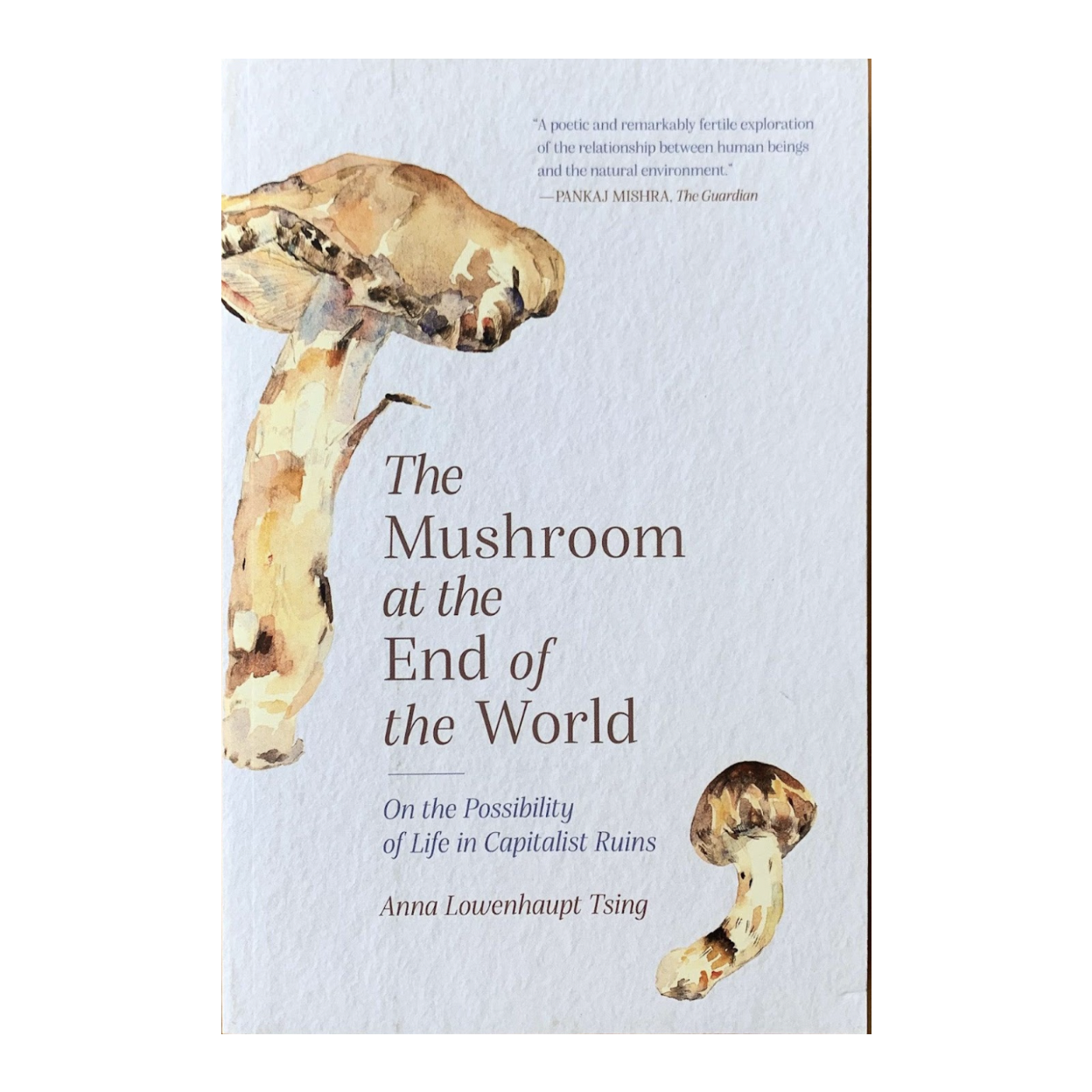
Amid the widespread wreckage of the contemporary moment, Tsing’s unique book uses anthropological field research to uncover the less visible mechanisms of capitalism; it also offers a surprising glimpse of hope that emerges from the bottom up. Perhaps the precarity that many people around the world currently experience acutely can also serve as a source of learning. By tracking the entangled social and environmental ecologies of a species of mushroom that grows in damaged, disturbed forest ecosystems, alongside the on-the-ground stories of the people who harvest it, Tsing creates a work that is equal parts theoretical and narrative. Significantly, the form of the book is unusual for an academic text and is part of the argument; by juxtaposing photographs, short interludes, and other structural devices, she develops a multilayered volume that reads almost like a gripping novel—apart from the fact that it’s about a single mushroom species and how it grows out of adversity.
Tsing, Anna Lowenhaupt. The Mushroom at the End of the World : On the Possibility of Life in Capitalist Ruins. Princeton: Princeton University Press, 2015.